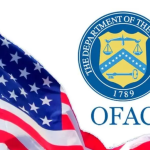Power has always been determined by resources. The British Empire’s dominance over coal contributed to its global expansion. As a leading oil power going into World War II, the US solidified its hold on the world market for many years. Batteries, solar panels, and artificial intelligence may be the foundation of power in this century. Additionally, China controls the minerals required to produce them, including lithium, graphite, and rare-earth elements.
It appears that both Washington parties concur that the United States would gain from ending Beijing’s near-monopoly on these materials. In an executive order issued in March to expedite mineral production permits, President Donald Trump stated that “our reliance upon hostile foreign powers’ mineral production is now acutely threatened.” In addition to approving a new rare-earths mine in California adjacent to the only one currently operating in the US, the administration today added ten more mines to a list of projects whose permits the federal government is expediting. In order to secure America’s mineral supply, it has also put forth ostentatious and contentious ideas, such as acquiring dubious accessible deposits in Greenland and Ukraine, paving the way for the establishment of the first deep-ocean floor mines, and directly investing federal funds in American mining firms.
Trump is also violating what experts say are the most effective federal tools for bringing mining back to the United States. According to Milo McBride, a fellow at the Carnegie Endowment for International Peace who studies the geopolitics of mineral supply chains, “the best way to create demand for minerals is to make sure clean-tech manufacturing markets are here.” “However, we’re reducing the demand for these technologies’ manufacturing.” He informed me that the administration will eventually have to confront the paradox of mineral security it is establishing: the nation is currently facilitating production while blocking off its primary routes.
Graphite supplier Syrah Resources is caught in that conundrum. The company plans to refine graphite into battery-grade material at its Vidalia project in central Louisiana, making it the first source of the soft, conductive mineral in the United States. (Chinese manufacturing accounts for 93% of global graphite processing capacity.) Although Syrah is an Australian company, it recognized a potential market for graphite in the United States as well as policies aimed at promoting production. In February 2024, when the plant began producing graphite, Syrah had several options for ensuring the success of its investment.
The facility was backed by a $102 million loan from the Department of Energy’s Loan Programs Office during the Biden administration. The State Department had outlined a 10-year plan to deepen U.S. ties with Mozambique, from which Syrah sources ore for refinement, in an effort to compete with China for mineral-rich African nations. (Improving transportation infrastructure, for example, was part of the plan to help get those rocks to port.) Additionally, the Inflation Reduction Act, the country’s historic climate-infrastructure law, was established to divert mineral supply chains from China. Its electric vehicle tax credit provided a significant incentive for vehicles that used batteries made of minerals that were produced in the United States.
One year later, there has been a significant shift in those federal policies. The Loan Programs Office is being completely dismantled by the Trump administration, which may lay off up to 60% of its employees. The lead mining and minerals analyst at the energy consultancy BloombergNEF, Kwasi Ampofo, noted that tariffs are increasing the cost of equipment required for mining and processing minerals, a large portion of which are bought from China, and that goods from Mozambique are now subject to 16 percent levies at American ports. Additionally, it is highly likely that Republicans in Congress will eliminate the IRA’s electric vehicle tax credits.
According to a Canary Media analysis of data from the research group E2, companies have already canceled plans for nearly $8 billion worth of clean-energy projects this year, the majority of which were battery and electric vehicle factories. Trump seems to be endangering the domestic supply of minerals for the military and industries he supports in an effort to fulfill his campaign promise to “terminate” what he referred to as the “Green New Scam.”
According to Seaver Wang, a researcher at the Breakthrough Institute, a think tank that focuses on policy around climate technology, “I’ve seen battery-industry players that are, in their rhetoric and advocacy in Washington, distancing themselves from EVs and selling themselves as strategic technology for grid resiliency and defense.” The administration is obviously concerned about rare earths from a defense and aerospace perspective. “However, we know that EVs account for about 80% of demand.” (The International Energy Agency predicts that in the future, 80 percent of the world’s battery capacity will come from electric vehicles.)
Furthermore, if no one is pushing for domestic purchases of those resources, the United States will not be able to control mining and minerals. “No mining company would drill a single hole to make an investment if there wasn’t a clear, consistent demand signal,” Ampofo informed me. “If you kill the chicken, you have no egg,” he explained, comparing it to a chicken-and-egg dilemma.
It’s already possible that some of the administration’s initiatives to facilitate the permitting of new mines and processing facilities are backfiring. Legal experts cautioned that the administration’s proposal would primarily create uncertainty, which will lead to lawsuits and conflict with decades of case law, because the National Environmental Policy Act is still in effect and Congress has not taken any action to repeal it. The White House reportedly ordered federal agencies to revoke regulations for implementing the act in order to assist such companies. Mineral mining and processing projects have lengthy lead times and substantial upfront expenses, such as labor, permits, and related legal fees. Arnab Datta, a critical mineral policy specialist at the think tank Employ America, told me that because of these factors, investors “are going to have very low tolerance for risk and uncertainty.” “Uncertainty and chaos have been introduced into every aspect of the equation by this administration.”
My request for comment was not answered by the White House. However, its approach appears to be predicated on the straightforward calculation that a domestic boom results from making mines easier to open and minerals more difficult to import. And it’s not totally nonsensical: Shaun Verner, the CEO of Syrah, stated on an industry podcast shortly after the 2024 presidential election that tariffs could help offset the loss of the electric vehicle tax credits by increasing the price of imported materials, thereby providing a price advantage to the company’s Louisiana plant. However, some important factors are overlooked in the administration’s calculations. It helps to ensure demand from a more plentiful buyer, such as automakers and the approximately 238 million Americans who drive cars, if a nation wants an abundance of minerals to supply batteries to one type of buyer, such as a military drone manufacturer. It helps to enlist allies who have not only resources you can potentially tap but also developed reserves you can share in order to quickly divert mineral supply chains away from the rival country that spent decades developing its industrial base. The fact that sweeping tariffs could increase the competitiveness of domestic minerals while simultaneously driving up the cost of the machinery required to produce those metals is overlooked by Trump’s formula.
China, meanwhile, is acting according to its own logic, which gives it more control over more factors. The Financial Times stated in March that during the past 12 months, “at least half of China’s 34 provincial-level governments, including those of top resource-producing regions like Xinjiang, have announced increased subsidies or expanded access for mineral exploration.” Beijing sets the prices for international contracts, even outside of China. Financiers look to the region where lithium prices are set, which is usually Asia due to China’s dominance, when determining the price for a ton of lithium. In other words, how much of the metal China is selling in a country like Vietnam ultimately determines the price of a deal between a lithium mine in Quebec and a Tesla factory in Texas.
By forming an alliance with other producers and creating an integrated market for contracts with nations like Australia, Brazil, and Canada that could set prices for selling materials to battery makers in Europe, South Korea, and Japan, Datta told me the United States could get around that. The Biden administration sought to achieve this goal by treating allies with free-trade agreements with the US as domestic sources for the electric vehicle tax credits. U.S. minerals were intended to provide those nations with a less hazardous option than China. However, Datta stated that “all these countries are looking to hedge away from the U.S. because we’ve pissed everyone off.”












